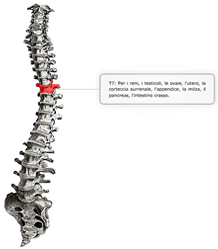Vitamin C
Vitamin C
Most people associate vitamin C with oranges and the prevention of colds. Recent advancements in Applied Kinesiology have demonstrated that vitamin C indeed enhances immune system function by increasing function of the left brain hemisphere. Moreover, Applied Kinesiologists have known since the late 1960s that vitamin C is associated with several muscles of the shoulder, and in fact many shoulder problems are resolved simply by supplementing with vitamin C.
Some of the most common symptoms associated with vitamin C deficiency include:
fatigue
chronic shoulder problems
frequent cold
easy bruising
swollen or bleeding gums
slow wound healing
dry and splitting hair
rough, dry, scaly skin
nosebleeds
swollen and painful joints
How do you know if you have a vitamin C deficiency?
Apart from the aforementioned symptoms, vitamin C deficiency can be screened for with the Lingual Ascorbic Acid Test (LAAT). This test is simple and inexpensive and it involves putting a single drop of blue dye containing 2,6 dichloroindophenol on the tongue, then timing how long it takes for it to disappear. The chemical 2,6 dichloroindophenol is neutralized by ascorbic acid and therefore the more ascorbic acid present in a person's tissues, the faster the blue color disappears. Most traditional Applied Kinesiologists and other alternative medicine practitioners utilize the LAAT to screen for vitamin C deficiency.
Which foods are high in vitamin C?
The U.S. Food and Drug Administration recognizes ascorbic acid as vitamin C, however, vitamin C as it occurs naturally in food is a balanced complex with several other components. Quality supplements come as such and foods that are high in vitamin C include:
kiwi
kale
oranges
broccoli
Brussel sprouts
cauliflower
grapefruit
red peppers
papaya
strawberries
Is it possible to take too much vitamin C?
Yes. Ascorbic acid is an acid and people taking high doses of vitamin C are also acidifying their tissues. While this may be indicated when there is an infection, an overly acidic system can lead to an array of health problems. It is therefore important to determine your pH levels before choosing which vitamin C to take: (i.e. buffered vs. not buffered).
Overdosing on vitamin C also has the potential to antagonize a need for vitamin A. Therefore, whenever you supplement, be sure to have a health care professional trained in manual muscle testing to assist you in choosing the right type and dosage of vitamin C.

 SCHEDULE AN APPOINTMENT
SCHEDULE AN APPOINTMENT









